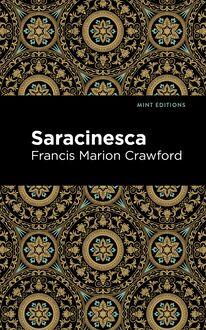-
 Univers
Univers
-
 Ebooks
Ebooks
-
 Livres audio
Livres audio
-
 Presse
Presse
-
 Podcasts
Podcasts
-
 BD
BD
-
 Documents
Documents
-
- Cours
- Révisions
- Ressources pédagogiques
- Sciences de l’éducation
- Manuels scolaires
- Langues
- Travaux de classe
- Annales de BEP
- Etudes supérieures
- Maternelle et primaire
- Fiches de lecture
- Orientation scolaire
- Méthodologie
- Corrigés de devoir
- Annales d’examens et concours
- Annales du bac
- Annales du brevet
- Rapports de stage
La lecture à portée de main
Vous pourrez modifier la taille du texte de cet ouvrage
Découvre YouScribe en t'inscrivant gratuitement
Je m'inscrisDécouvre YouScribe en t'inscrivant gratuitement
Je m'inscrisEn savoir plus
Vous pourrez modifier la taille du texte de cet ouvrage
En savoir plus

Description
George Eliot’s most acclaimed work, Middlemarch displays the author at the peak of her powers, weaving multiple plotlines and a memorable collection of characters together to create a wide-ranging novel of remarkable insight.
First appearing in 1871, Middlemarch is a historical novel set 42 years before its publication. Political and social concerns of the era are present but serve as background and contrast to four compelling plotlines focused on a set of unforgettable characters striving against circumstance, each other, and themselves. Powerful themes, religion, love, marriage, education, society’s treatment of women and much more, are dealt with as fully fused elements of the story and integral parts of the lives of the characters. The author conveys a sweeping vision of small-town England in the Victorian era, the rich and the poor, the people of the countryside and the people of the city, while unspooling several interlocked storylines full of passion, uncertainty and suspense. Middlemarch received a mixed reaction upon its initial appearance, but has gained in standing among critics and general readers until it is now commonly considered one of the high points of 19th century fiction and even of English literature as a whole.
With an eye-catching new cover, and professionally typeset manuscript, this edition of Middlemarch is both modern and readable.
Sujets
Informations
| Publié par | Mint Editions |
| Date de parution | 22 novembre 2020 |
| Nombre de lectures | 0 |
| EAN13 | 9781513268187 |
| Langue | English |
| Poids de l'ouvrage | 1 Mo |
Informations légales : prix de location à la page 0,0850€. Cette information est donnée uniquement à titre indicatif conformément à la législation en vigueur.
Extrait
Middlemarch
George Eliot
Middlemarch was first published in 1871.
This edition published by Mint Editions 2020.
ISBN 9781513265964 | E-ISBN 9781513268187
Published by Mint Editions®
minteditionbooks.com
Publishing Director: Jennifer Newens
Design & Production: Rachel Lopez Metzger
Typesetting: Westchester Publishing Services
C ONTENTS P RELUDE B OOK I: M ISS B ROOKE C HAPTER I C HAPTER II C HAPTER III C HAPTER IV C HAPTER V C HAPTER VI C HAPTER VII C HAPTER VIII C HAPTER IX C HAPTER X C HAPTER XI C HAPTER XII B OOK II: O LD AND Y OUNG C HAPTER XIII C HAPTER XIV C HAPTER XV C HAPTER XVI C HAPTER XVII C HAPTER XVIII C HAPTER XIX C HAPTER XX C HAPTER XXI C HAPTER XXII B OOK III: W AITING FOR D EATH C HAPTER XXIII C HAPTER XXIV C HAPTER XXV C HAPTER XXVI C HAPTER XXVII C HAPTER XXVIII C HAPTER XXIX C HAPTER XXX C HAPTER XXXI C HAPTER XXXII C HAPTER XXXIII B OOK IV: T HREE L OVE P ROBLEMS C HAPTER XXXIV C HAPTER XXXV C HAPTER XXXVI C HAPTER XXXVII C HAPTER XXXVIII C HAPTER XXXIX C HAPTER XL C HAPTER XLI C HAPTER XLII B OOK V: T HE D EAD H AND C HAPTER XLIII C HAPTER XLIV C HAPTER XLV C HAPTER XLVI C HAPTER XLVII C HAPTER XLVIII C HAPTER XLIX C HAPTER L C HAPTER LI C HAPTER LII C HAPTER LIII B OOK VI: T HE W IDOW AND THE W IFE C HAPTER LIV C HAPTER LV C HAPTER LVI C HAPTER LVII C HAPTER LVIII C HAPTER LIX C HAPTER LX C HAPTER LXI C HAPTER LXII B OOK VII: T WO T EMPTATIONS C HAPTER LXIII C HAPTER LXIV C HAPTER LXV C HAPTER LXVI C HAPTER LXVII C HAPTER LXVIII C HAPTER LXIX C HAPTER LXX C HAPTER LXXI B OOK VIII: S UNSET AND S UNRISE C HAPTER LXXII C HAPTER LXXIII C HAPTER LXXIV C HAPTER LXXV C HAPTER LXXVI C HAPTER LXXVII C HAPTER LXXVIII C HAPTER LXXIX C HAPTER LXXX C HAPTER LXXXI C HAPTER LXXXII C HAPTER LXXXIII C HAPTER LXXXIV C HAPTER LXXXV C HAPTER LXXXVI F INALE
P RELUDE
W ho that cares much to know the history of man, and how the mysterious mixture behaves under the varying experiments of Time, has not dwelt, at least briefly, on the life of Saint Theresa, has not smiled with some gentleness at the thought of the little girl walking forth one morning hand-in-hand with her still smaller brother, to go and seek martyrdom in the country of the Moors? Out they toddled from rugged Avila, wide-eyed and helpless-looking as two fawns, but with human hearts, already beating to a national idea; until domestic reality met them in the shape of uncles, and turned them back from their great resolve. That child-pilgrimage was a fit beginning. Theresa’s passionate, ideal nature demanded an epic life: what were many-volumed romances of chivalry and the social conquests of a brilliant girl to her? Her flame quickly burned up that light fuel; and, fed from within, soared after some illimitable satisfaction, some object which would never justify weariness, which would reconcile self-despair with the rapturous consciousness of life beyond self. She found her epos in the reform of a religious order.
That Spanish woman who lived three hundred years ago, was certainly not the last of her kind. Many Theresas have been born who found for themselves no epic life wherein there was a constant unfolding of far-resonant action; perhaps only a life of mistakes, the offspring of a certain spiritual grandeur ill-matched with the meanness of opportunity; perhaps a tragic failure which found no sacred poet and sank unwept into oblivion. With dim lights and tangled circumstance they tried to shape their thought and deed in noble agreement; but after all, to common eyes their struggles seemed mere inconsistency and formlessness; for these later-born Theresas were helped by no coherent social faith and order which could perform the function of knowledge for the ardently willing soul. Their ardor alternated between a vague ideal and the common yearning of womanhood; so that the one was disapproved as extravagance, and the other condemned as a lapse.
Some have felt that these blundering lives are due to the inconvenient indefiniteness with which the Supreme Power has fashioned the natures of women: if there were one level of feminine incompetence as strict as the ability to count three and no more, the social lot of women might be treated with scientific certitude. Meanwhile the indefiniteness remains, and the limits of variation are really much wider than any one would imagine from the sameness of women’s coiffure and the favorite love-stories in prose and verse. Here and there a cygnet is reared uneasily among the ducklings in the brown pond, and never finds the living stream in fellowship with its own oary-footed kind. Here and there is born a Saint Theresa, foundress of nothing, whose loving heart-beats and sobs after an unattained goodness tremble off and are dispersed among hindrances, instead of centring in some long-recognizable deed.
BOOK I
MISS BROOKE
Chapter I
Since I can do no good because a woman,
Reach constantly at something that is near it.
— The Maid’s Tragedy: B EAUMONT AND F LETCHER
M iss Brooke had that kind of beauty which seems to be thrown into relief by poor dress. Her hand and wrist were so finely formed that she could wear sleeves not less bare of style than those in which the Blessed Virgin appeared to Italian painters; and her profile as well as her stature and bearing seemed to gain the more dignity from her plain garments, which by the side of provincial fashion gave her the impressiveness of a fine quotation from the Bible,—or from one of our elder poets,—in a paragraph of to-day’s newspaper. She was usually spoken of as being remarkably clever, but with the addition that her sister Celia had more common-sense. Nevertheless, Celia wore scarcely more trimmings; and it was only to close observers that her dress differed from her sister’s, and had a shade of coquetry in its arrangements; for Miss Brooke’s plain dressing was due to mixed conditions, in most of which her sister shared. The pride of being ladies had something to do with it: the Brooke connections, though not exactly aristocratic, were unquestionably “good:” if you inquired backward for a generation or two, you would not find any yard-measuring or parcel-tying forefathers—anything lower than an admiral or a clergyman; and there was even an ancestor discernible as a Puritan gentleman who served under Cromwell, but afterwards conformed, and managed to come out of all political troubles as the proprietor of a respectable family estate. Young women of such birth, living in a quiet country-house, and attending a village church hardly larger than a parlor, naturally regarded frippery as the ambition of a huckster’s daughter. Then there was well-bred economy, which in those days made show in dress the first item to be deducted from, when any margin was required for expenses more distinctive of rank. Such reasons would have been enough to account for plain dress, quite apart from religious feeling; but in Miss Brooke’s case, religion alone would have determined it; and Celia mildly acquiesced in all her sister’s sentiments, only infusing them with that common-sense which is able to accept momentous doctrines without any eccentric agitation. Dorothea knew many passages of Pascal’s Pensees and of Jeremy Taylor by heart; and to her the destinies of mankind, seen by the light of Christianity, made the solicitudes of feminine fashion appear an occupation for Bedlam. She could not reconcile the anxieties of a spiritual life involving eternal consequences, with a keen interest in gimp and artificial protrusions of drapery. Her mind was theoretic, and yearned by its nature after some lofty conception of the world which might frankly include the parish of Tipton and her own rule of conduct there; she was enamoured of intensity and greatness, and rash in embracing whatever seemed to her to have those aspects; likely to seek martyrdom, to make retractations, and then to incur martyrdom after all in a quarter where she had not sought it. Certainly such elements in the character of a marriageable girl tended to interfere with her lot, and hinder it from being decided according to custom, by good looks, vanity, and merely canine affection. With all this, she, the elder of the sisters, was not yet twenty, and they had both been educated, since they were about twelve years old and had lost their parents, on plans at once narrow and promiscuous, first in an English family and afterwards in a Swiss family at Lausanne, their bachelor uncle and guardian trying in this way to remedy the disadvantages of their orphaned condition.
It was hardly a year since they had come to live at Tipton Grange with their uncle, a man nearly sixty, of acquiescent temper, miscellaneous opinions, and uncertain vote. He had travelled in his younger years, and was held in this part of the county to have contracted a too rambling habit of mind. Mr. Brooke’s conclusions were as difficult to predict as the weather: it was only safe to say that he would act with benevolent intentions, and that he would spend as little money as possible in carrying them out. For the most glutinously indefinite minds enclose some hard grains of habit; and a man has been seen lax about all his own interests except the retention of his snuff-box, concerning which he was watchful, suspicious, and greedy of clutch.
In Mr. Brooke the hereditary strain of Puritan energy was clearly in abeyance; but in his niece Dorothea it glowed alike through faults and virtues, turning sometimes into impatience of her uncle’s talk or his way of “letting things be” on his estate, and making her long all the more for the time when she would be of age and have some command of money for generous schemes. She was regarded as an heiress; for not only had the sisters seven hundred a-year each from their parents, but if Dorothea married and had a son, that son would inherit Mr. Brooke’s estate, presumably worth about three thousand a-year—a rental which seemed wealth to provincial families, still discu
-
 Univers
Univers
-
 Ebooks
Ebooks
-
 Livres audio
Livres audio
-
 Presse
Presse
-
 Podcasts
Podcasts
-
 BD
BD
-
 Documents
Documents
-
Jeunesse
-
Littérature
-
Ressources professionnelles
-
Santé et bien-être
-
Savoirs
-
Education
-
Loisirs et hobbies
-
Art, musique et cinéma
-
Actualité et débat de société
-
Jeunesse
-
Littérature
-
Ressources professionnelles
-
Santé et bien-être
-
Savoirs
-
Education
-
Loisirs et hobbies
-
Art, musique et cinéma
-
Actualité et débat de société
-
Actualités
-
Lifestyle
-
Presse jeunesse
-
Presse professionnelle
-
Pratique
-
Presse sportive
-
Presse internationale
-
Culture & Médias
-
Action et Aventures
-
Science-fiction et Fantasy
-
Société
-
Jeunesse
-
Littérature
-
Ressources professionnelles
-
Santé et bien-être
-
Savoirs
-
Education
-
Loisirs et hobbies
-
Art, musique et cinéma
-
Actualité et débat de société
- Cours
- Révisions
- Ressources pédagogiques
- Sciences de l’éducation
- Manuels scolaires
- Langues
- Travaux de classe
- Annales de BEP
- Etudes supérieures
- Maternelle et primaire
- Fiches de lecture
- Orientation scolaire
- Méthodologie
- Corrigés de devoir
- Annales d’examens et concours
- Annales du bac
- Annales du brevet
- Rapports de stage




















